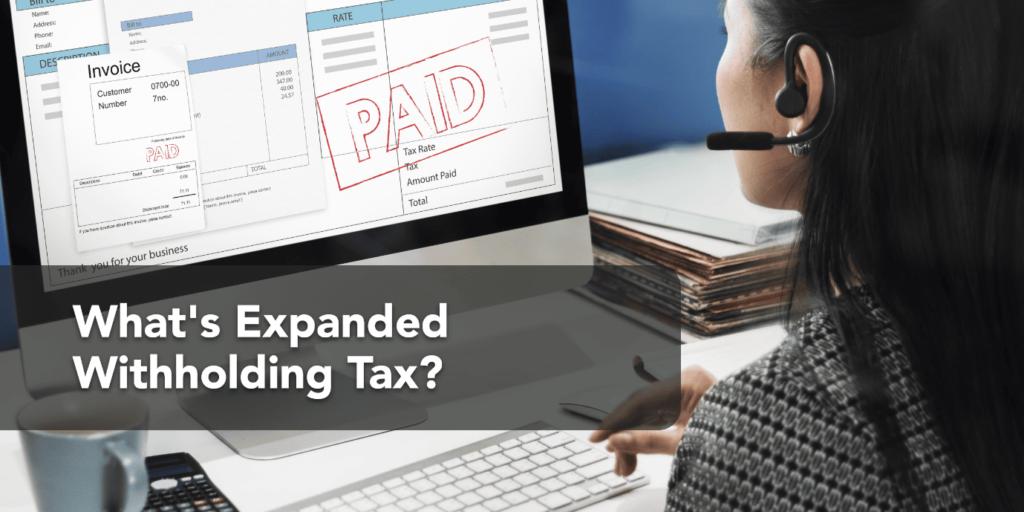In the Philippines, Withholding of Creditable Tax at Source is also known as Expanded Withholding Tax (EWT). In practice, it is a tax mechanism where income payments subject to withholding taxes are further subjected to a higher rate of withholding tax.

Here are some important considerations about EWT in the Philippines:
1.Nature of EWT:
EWT is an instrument to collect income tax at source from persons or corporations that receive certain types of income. It is creditable against the payor’s income tax liability of taxable year.
2. Applicability:
EWT applies to certain income payments including professional fees, rentals, commissions, and other types of income specified by the Bureau of Internal Revenue (BIR).
3. Rates:
EWT rate varies from 1% to 15% depending on the types of income and whether the recipients are individuals or corporations.
4. Filing and Remittance:
The payer (withholding agent) is responsible for withholding the tax and remitting it to the BIR. Issuing a Certificate of Creditable Tax Withheld at Source (BIR Form 2307) from the withholding agent to the income earner that shows EWT amounts is also compulsory.
5. Taxpayer’s Perspective:
For the recipient of income subject to EWT, the amount of tax withheld shall be allowed as a credit against their income tax due for the taxable year. This means the EWT already withheld is deducted from the total income tax due when the recipient files their annual income tax return.
Generally, Expanded Withholding Tax in the Philippines serves as a mechanism to ensure an efficient and taxpayer-compliant collection of taxes. It might be complicated in the first place, however, comprehending its related rules and obligations is important for businesses and individuals in the Philippines to affirm compliance with tax statutes hence avoiding fines.
